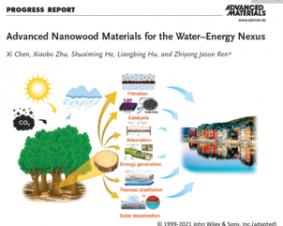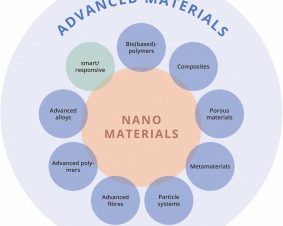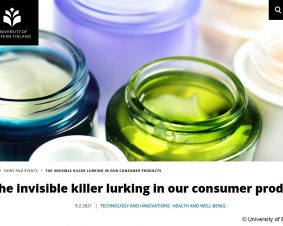 >
Spotlight January 2022: Methods, models, mechanisms and metadata
>
Spotlight January 2022: Methods, models, mechanisms and metadata
For the new year, we are presenting no “classic” paper here, but would like to point out an editorial: Methods, Models, Mechanisms and Metadata: Introduction to the Nanotoxicology Collection at F1000 Research.
This editorial introduces the F1000Research Nanotoxicology Collection, where best practices can be collected in the form of original research reports, including no-effect studies, protocols and methods papers, software reports and systematic reviews. The aim of the collection is to provide an open access platform for nanotoxicology researchers to support an improved culture of data sharing and documentation of evolving protocols, biological and computational models, software tools and datasets that can be used and built upon to develop predictive models and in-silico nanotoxicology and nanoinformatics.
F1000Research (https://f1000research.com/) is an open-research publishing platform for scientists, academics and clinicians, enabling rapid publication of articles and other research outputs without editorial interference. All articles benefit from transparent peer review and editorial guidance to make all source data openly available.
Original publication:
Lynch I, Nymark P, Doganis P et al. Methods, models, mechanisms and metadata: Introducing the Nanotoxicology collection at F1000Research [version 1; peer review: not peer reviewed] F1000Research 2021, 10:1196 https://doi.org/10.12688/f1000research.75113.1

Weitere Spotlights
Spotlight September 2021: Wood, the raw material of the future?
One of the greatest challenges facing humanity is to produce clean drinking water under the given circumstances of global warming, population growth and increasing littering. In September, we would like to present a review article that believes one approach to solve this problem is the use of nanoscale wood. In the review, “Advanced Nanowood Materials […]
Read moreSpotlight June 2022: From small to clever – What does the future hold for the safety and sustainability of advanced materials?
The smallest particles in materials research, nanoparticles, have occupied us intensively for more than 20 years to elucidate and further investigate their safety for humans and the environment. Now, however, the development is going from “small = nano” to “clever = advanced”, as discussed in a contribution by international scientists. Thereby, it is a great […]
Read moreSpotlight April 2021: Nanomaterials and Fake News – a commentary based on an example
In February 2021, the article “The invisible killer lurking in our consumer products” appeared, describing nanoparticles as a greater danger than Corona [1]. “The use of nanomaterials” would be “unregulated” and “nanomaterials are so small that they cannot be determined once they are part of a product”. So what is the truth of these statements? […]
Read moreSpotlight March 2023: How can photovoltaics be made safe and sustainable?
Conventional photovoltaic systems often have only low efficiency, i.e. only a fraction of the solar energy is converted into electrical energy and made usable. For this reason, research is being conducted into innovative materials that can significantly increase the energy yield and thus also enable more electrical energy to be generated from renewable sources. However, […]
Read more


